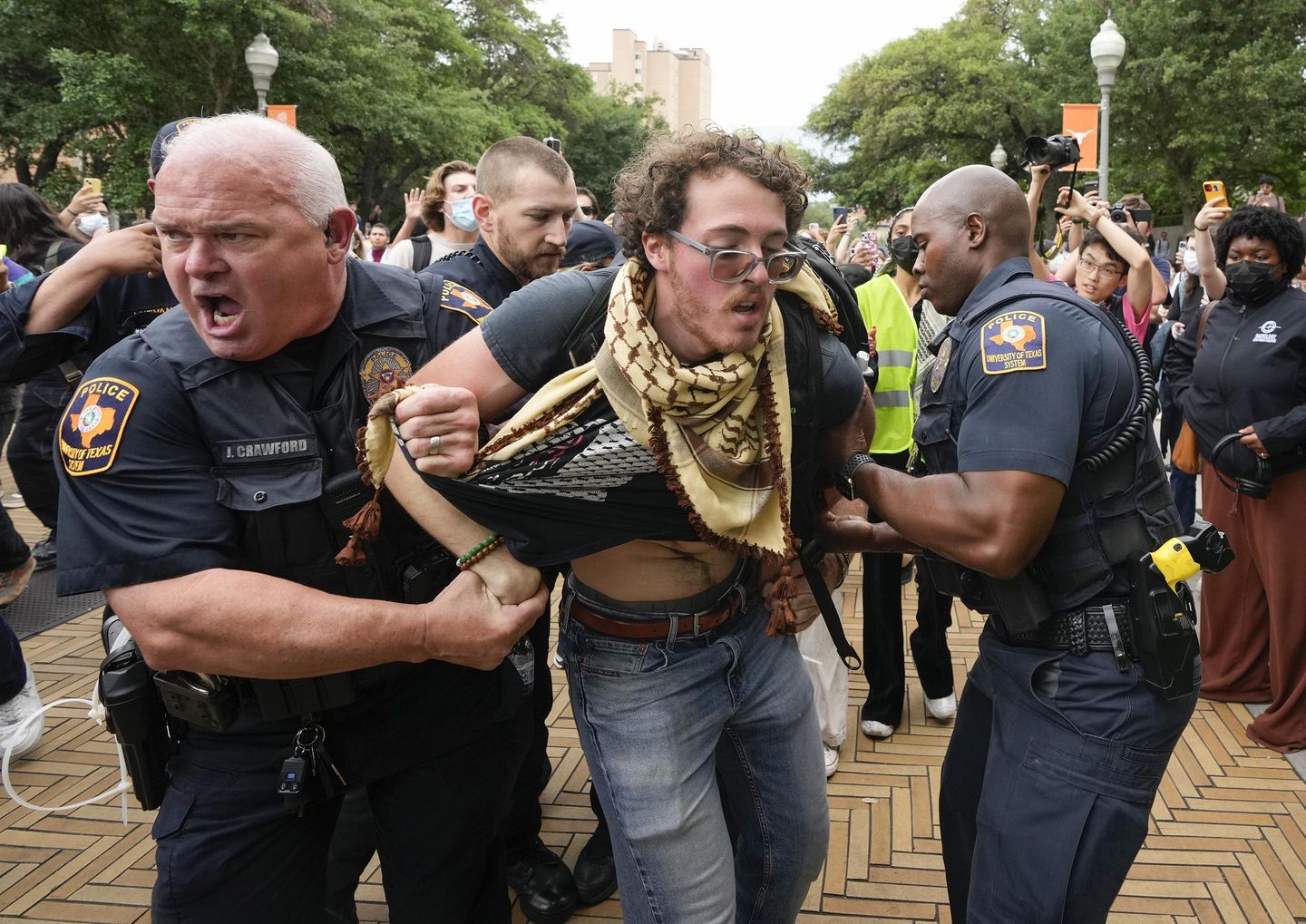On Wednesday evening, police at the University of Southern California peacefully arrested student protesters who were demonstrating against the Israel-Hamas war. This came after a violent clash earlier in the day at a Texas university, where dozens of demonstrators were aggressively taken into custody by police. These incidents are part of a larger trend of clashes between law enforcement and protesters at universities across the country.
The protests at USC and in Texas are just a few examples of the ongoing demonstrations against the Israel-Hamas conflict that have been taking place on college campuses nationwide. These protests have sparked tensions between law enforcement and demonstrators, leading to arrests and confrontations. The clashes highlight the deep divide and strong emotions surrounding the conflict in the Middle East.
The use of force by police in response to student protests raises questions about the balance between maintaining public order and respecting the rights of individuals to peacefully demonstrate. While law enforcement has a duty to uphold the law and ensure public safety, they must also be mindful of the rights of protesters to express their views without fear of violence or intimidation. The incidents at USC and in Texas serve as a reminder of the importance of protecting freedom of speech and the right to protest.
The clashes at universities over the Israel-Hamas conflict are part of a larger debate about the role of universities in addressing politically charged issues. Some argue that universities should be spaces for open dialogue and debate, where students can freely express their opinions and engage in discussions about complex and controversial topics. Others believe that universities should take a stand on certain issues, including human rights abuses and international conflicts, and support those who are marginalized or oppressed.
As tensions continue to escalate on college campuses over the Israel-Hamas conflict, it is important for all parties involved to engage in constructive dialogue and seek peaceful resolutions. Universities have a responsibility to create a safe and inclusive environment for all students, regardless of their political beliefs or backgrounds. By fostering open communication and promoting understanding and empathy, universities can help bridge the divide and promote peace and justice in their communities.









